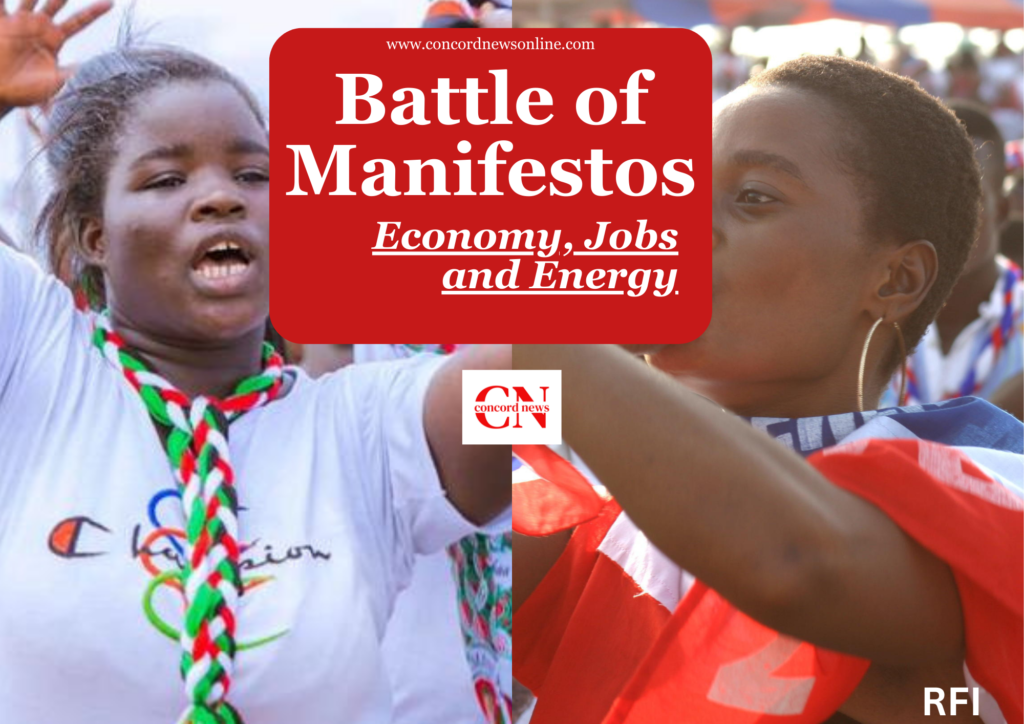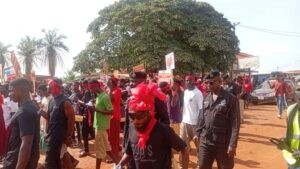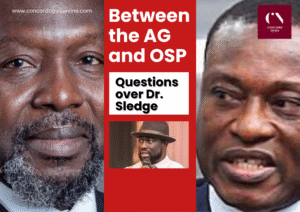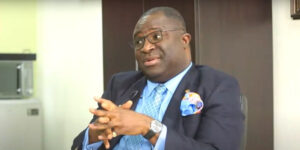
Political Editor, KOBBY DEAN, in the second of a three-part series analyses the manifestos of the two main parties, the NPP and the NDC in the areas of Energy, Economy and Jobs, as they articulate their vision for the country in the run-up to Election 2024.
The economy presents a real battle field for the two main political parties going into the 2024 Elections considering the economic challenges the country has faced. Both parties have touted better economic credentials but what do the facts exactly say?
The country’s economic indicators are currently not impressive: the NPP has consistently harped on the Covid Pandemic and Russia-Ukraine War as the reasons for a very challenging economic period during which interest rates spiraled over 30 percent, inflation peaked at about 50 percent with exchange rate depreciation continuing to raise concerns. But these reasons have clearly become lame excuses as there are obvious issues with the management of the economy with MPs of the party revolting against the former Finance Minister, Ken Ofori Atta leading to his removal.
Yet, the NPP flag bearer, Dr. Mahamudu Bawumia argues that the party has performed better than the NDC in all facets of the economy. Many economic experts disagree. Credible data indicate that many more Ghanaians have gotten poorer over the time of the NPP than was the case about eight years ago. This no doubt is the clearest indicator of the country’s hard economic reality. For instance, in July last year, the World Bank noted that about 850,000 more Ghanaians had been pushed into poverty and the Bank cited inflationary pressures as the primary cause.
The NDC Manifesto has been hailed by some experts such as Franklin Cudjoe of Imani Africa as providing better solutions to the country’s economic challenges.
Comparatively, the economic indicators left by the NDC in 2017 are better than they are today. Many, attribute this to excessive borrowing by the NPP with the country’s debt burden ballooning from GHS120bn in December 2016 to currently over GHS742bn.
The NDC is offering to reset the Ghanaian economy in its manifesto. The strategy in the NDC’s manifesto is categorized under three chapters: In Chapter One, Resetting the Economy, it looks at restoring fiscal sustainability and discipline, lowering interest rates, stabilising the cedi, reducing inflation and creating the enabling environment for businesses to create jobs and foster inclusive economic growth and development.
In Chapter Two, Jobs for All, the Party presents it much touted 24-Hour Economy Policy, business development, and sustainable job creation strategies. It also covers comprehensive policies for entrepreneurship, SME support, and market expansion. There is also what the party describes as “Jobs 4 You Agenda’ that focuses on creating sustainable jobs, enhancing labour productivity, and generating wealth for Ghanaians through technology, innovation, and inclusive growth strategies”.
Under Chapter Three, Framework for Industrialisation, Revitalisation, Support and Transformation (Ghana First), there is emphasis on production as a direct driver of our economic development. This chapter focuses on agriculture, trade (manufacturing), and the culture-arts-tourism sectors. According to the Manifesto, the objective is to boost national income and employment and reposition Ghana as a self-reliant player in regional and international markets.
Chapter Four is on Powering Growth through Infrastructural Development while Chapters Five and Six are on Investing in People for Inclusive Growth and Restoring Good Governance and Combating Corruption respectively.
The NPP offers categorisations under the following themes: Sustaining and expanding the country’s rebounding economy, creation of new jobs, implementation of wide ranging tax reforms, Building Ghana into World Class Digital Economy.
ECONOMY AND JOBS
One of the key offerings of both Manifestos is the scrapping of some taxes. The NDC has proposed to scrap the following draconian taxes within our first 100 days in office to alleviate hardships and
ease the high cost of doing business: E-levy, COVID levy, 10% levy on bet winnings, emissions levy and import duty on vehicles and equipment imported into the country for industrial and agricultural purposes. Additionally, the Party has proposed to apply the price Stabilisation and Recovery levy on fuel to cushion consumers and undertake a comprehensive reform of Ghana’s VAT regime to provide relief for households and businesses.
The NPP has also offered to implement wide-ranging tax reforms which includes: Offering a one-time tax amnesty to all Ghanaians and corporate entities through a tax amnesty from the payment of taxes from the previous years and the waiving of interest and penalties for failures to file taxes in previous years. reform the Value Added Tax regime by merging all levies into a single line-item levy, and treat the merged levy as part of input and output VAT, to eliminate the cascading effect in the current regime – reduce Withholding Tax (WHT) for small scale gold exports to 1% to discourage smuggling – abolish the Betting Tax. The Party says it will also implement a Flat Rate for all importers, bringing predictability and stability on prices of imported goods and under its digital economy vision also like the NDC abolish the E-Levy.
Both parties clearly present very auspicious proposals for the abolishment of some taxes perhaps, a recognition of the need to stimulate economic growth by boosting spending and production.
The NDC while expressing a desire to stabilize the national currency and the macro-economy through an urgent economic recovery programme to shore up our foreign reserves still emphasizes the need to Shift from over-reliance on the macro-economy; but rather prioritize the micro-economy and invest in the real sector to anchor sustainable growth. The party also offers to implement an Economic Transformation Agenda (ETA), underpinned by structural reforms anchored on promoting modernized agriculture, agri-business and value addition for import substitution, exports and job creation and reduce food inflation to lower the high cost of living in the country through agriculture for economic transformation.
The NPP on its part has proposed to support businesses to drive and accelerate job creation by: cutting 3% of GDP from government expenditure (~GH₵30 billion), and redirecting it towards private sector provision of public infrastructure and services
Additionally, the Party has committed to achieve, and sustain an average 6% growth by expanding
Agriculture, Mining (including establishing Minerals Development Bank), 1D1F, Emerging Industries, Digital Hub & Services, Sports, Tourism, and Creative Arts.
Clearly, the Manifesto of the NDC is more detailed in outlining the measures it will take to manage the economy. These include clearly outlined measures on Fiscal Policy that target enhancing revenue mobilization, reducing government expenditure and cut down waste, reducing public debt to sustainable levels, reducing consumption related expenditure and increase capital investments to spur economic growth and job creation; and reducing the fiscal deficit progressively in accordance with the Fiscal Responsibility Act.
Additionally, the NDC Manifesto clearly outlines policies that details the Party’s vision on Monetary Policy, Exchange Rate Policy, and Financial Sector Development including managing exchange rate and reducing inflation.
The NPP Manifesto, while promising to deliver accelerated economic growth does not provide comprehensive coverage and detail and raises many unanswered questions as to how the party can deliver on its vision of accelerated economic development. However, the Party presents some detail on its Digital Economy vision. Indeed, while both Parties articulate good visions for Digital Economy, with promise of training in digital skills to one million Ghanaian Youth the NPP goes further to promise more interventions to help develop the country into a World Class Digital economy including providing venture funding and grant support for commercially viable tech projects by Ghanaian start-ups to drive innovation, foster high-tech entrepreneurship, create jobs, and support growth of Ghanaian high-tech businesses.
ENERGY SECTOR
In the Energy Sector, the NDC has outlined a vision that clearly sets out proposals for power generation, transmission and distribution.
The Party has outlined a vision to diversify the energy sources emphasising other sources such as nuclear, solar, wind, biogas and mini-hydro power production. With regards to the Petroleum Sector, the Party also outlines a vision that will increase local involvement.
The Petroleum Infrastructure Master Plan of the Party, among others, seeks to establish the Keta Port (that has seen only a signpost since the appointment of a director five years ago) as a complementary petroleum products delivery hub.
The NDC has also committed to establish a guaranteed and structured foreign exchange allocation policy for the petroleum downstream sector and review what it describes as the ‘opaque’ ‘gold-for-oil’ scheme to ensure sufficient and predictable supply of foreign exchange.
The Party’s Manifesto is strong on the Energy Sector, outlining very useful policies that seeks to ensure efficiency in the Generation, Transmission and Distribution of power. Critically, the Party articulates a vision under what it terms the LIGHT UP GHANA Project to support the 24-Hour Economy. Some of the critical offers under this policy street lighting programme and the review of electricity tariffs to make them more affordable.
The NPP Manifesto highlights does not provide any detailed vision on the Energy Sector, and this clearly is a glaring weakness in its manifesto. However, one notable proposal is the commitment to significantly improving the availability and affordability of power by bringing on stream 2,000 MW of solar power, and incentivizing users by buying excess power they generate from solar systems and paying with “free electricity” from the national grid when they need power (through net metering).






